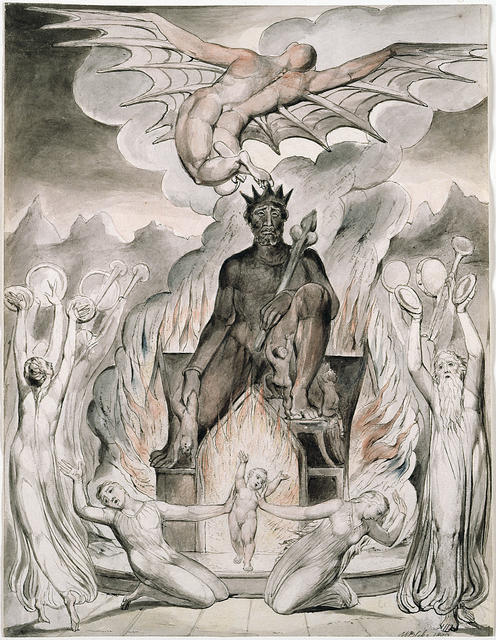
Just as the myths saying eggs are unhealthy and that we should reduce salt in our diet have been proven false, so too is the myth that olive oil should not be used in cooking.
by John P. Thomas
Health Impact News
One of the most common myths perpetrated on the Internet is that while olive oil is healthy, it should not be used for cooking or frying. The belief is that somehow the high heat used in cooking or frying makes olive oil unhealthy. However, this belief is not consistent with historical uses of olive oil in Mediterranean cuisine, nor with a wide body of published research.
Olive oil is not only safe for cooking, but it is recommended by scientists and olive oil experts for high temperature frying! The notion that extra virgin olive oil should never be heated or used for cooking is not supported by research.
Dr. Mary Enig, author of Know Your Fats, is one of America’s foremost experts on healthy fats and oils. She recommends her own personal blend of oils including using olive oil for cooking. She states,
“A unique blend of oils that can be used for sautéing and light frying is one that is a blend of coconut oil (one-third), sesame oil (one-third), and olive oil (one-third). It is easy to make up in small portions ranging from a single tablespoon measure (one teaspoon of each oil) to a pint and a half size (one cup of each oil).”1
Dr. Enig’s recommendation is supported by a wide body of peer-reviewed published research. The high levels of antioxidants present in the highest quality olive oils, usually classified as extra virgin olive oils, are what make olive oil heat stable and an excellent choice for frying or cooking.
A study reported in the Journal of Agricultural and Food Chemistry tested the effects of continuously heating virgin olive oil for 36 hours to measure how the oil degraded. The scientists reported:
“Two monovarietal extra virgin olive oils from Arbequina and Picual cultivars were subjected to heating at 180 degrees C (356 degrees F) for 36 h. Oxidation progress was monitored by measuring oil quality changes (peroxide value and conjugated dienes and trienes), fatty acid composition, and minor compound content. … From these results, we can conclude that despite the heating conditions, VOO (virgin olive oil) maintained most of its minor compounds and, therefore, most of its nutritional properties.”2
Oxidized fats, which are primarily derived from polyunsaturated oils such as corn and soybean oils, are linked to inflammation and various diseases.
Studies have been conducted comparing virgin olive oil with sunflower oil (a polyunsaturated oil) and cooking oils where antioxidants were added. These antioxidants, which are present naturally in high quality olive oils, protect against oxidative stress and inflammation when high heat is applied to the oils.3
In fact, the antioxidants present in olives are so powerful in resisting oxidation due to heat, that they are added to other cooking oils to make them more stable when cooking.4
The International Olive Oil Council (IOOC) provides information about the maximum temperature that can be used when cooking with virgin olive oil.
“When heated, olive oil is the most stable fat, which means it stands up well to high frying temperatures. Its high smoke point (410ºF) 210ºC is well above the ideal temperature for frying food (356ºF) 180ºC. The digestibility of olive oil is not affected when it is heated, even when it is re-used several times for frying.”5
In a nutshell, virgin olive oil can safely be used for cooking and even deep frying. The oil can be reused more than once, and the oil does not seriously degrade in normal household cooking. Olive oil is sensitive to sunlight, however, and is therefore usually packaged in tinted bottles.
Richard Gawel, an internationally known olive oil expert, also recommends the use of olive oil for cooking. He is a consultant taster and blender for a number of Australian olive oil companies, and has been the presiding judge of major olive oil shows in Australia and New Zealand, as well as the Los Angeles International Extra Virgin olive oil show.6
These are the answers that Richard Gawel provides to commonly asked questions about cooking with olive oil.
Can I use extra virgin olive oils for frying?
Yes, but to be honest, refined olive oils (that is those labeled as ‘Pure’ or ‘Light’) are probably a more cost effective alternative when more than shallow frying. Refined olive oils also begin to smoke at a higher temperature than most extra virgin olive oils, making them more suited to deep frying. However, extra virgin olive oils are a far better alternative when shallow frying. It is commonly thought that extra virgin olive oil smokes at a low temperature. However, it is a fact that the lower the free fatty acidity (FFA) i.e. better oils, the higher the temperature at which the oil will begin to smoke. Therefore if you purchase high quality oil with an FFA less than 0.2%, then it will start to smoke at a temperature around 20C higher than your average supermarket EV imported from the EU. That’s a lot in culinary terms.
Can I reuse olive oil?
Yes, extra virgin olive oils can be reused a few times. However, keep in mind that each time an oil is heated and cooled it will lose some of its aroma, flavour, freshness and health giving polyphenols and tocopherol. … However, recent research has shown that the important antioxidant called oleocanthal loses its anti-inflammatory activity under even mild short term heating.
Do trans fats form in olive oil when it is heated?
No they don’t. Trans fats form when any edible oil is subjected to an industrial process called hydrogenation designed to turn liquid oil into an edible fat that is solid at room temperature – that is margarine. The hydrogenation process involves heating up oil under extreme pressure and then bubbling hydrogen gas through it in the presence of a Palladium metal catalyst. For trans fats to form all of these conditions must be in place – heat and pressure and hydrogen gas and an appropriate catalyst. It just can’t happen in your kitchen. The vast majority of trans fats in the average persons diet arise from fast foods, cheap margarines, or more commonly commercial baked products and crackers.”7
The common myth that olive oils are not suitable for cooking or frying is an unfortunate belief, particularly for those eating out at restaurants who want to avoid toxic GMO cooking oils such as corn, soybean, and canola. Many restaurants stock olive oil, and it is probably your best choice when ordering anything fried in restaurants, if the chef or cooks will accommodate your request. Saturated fats such as coconut oil are still the best choice for high heat cooking, but very few restaurants are stocking saturated fats yet these days, and we should not fear adding a high quality olive oil to our home kitchen cooking oils.
The olive oils with the highest levels of antioxidants, and therefore the most heat resistant to high-heat cooking or frying, are generally extra virgin olive oils. Unfortunately, many olive oils available in the market are adulterated and mislabeled extra virgin olive oils. See: Extra Virgin Olive Oil Fraud: A Guide to Purchasing Olive Oil
References
1. Know Your Fats, Mary Enig, Ph.D., 2010, pp 197.
2. “How heating affects extra virgin olive oil quality indexes and chemical composition,” Y. Allouche, A. Jiménez, J. J. Gaforio, M. Uceda, G. Beltrán, J Agric Food Chem, 2007 Nov 14;55(23):9646-54. Epub 2007 Oct 13, PMID: 17935291
3.”The antioxidants in oils heated at frying temperature, whether natural or added, could protect against postprandial oxidative stress in obese people.” Perez-Herrera A, Food Chem. 2013 Jun 15;138(4):2250-9
4.” Influence of simulated deep frying on the antioxidant fraction of vegetable oils after enrichment with extracts fromolive oil pomace.” Orozco-Solano MI, Priego-Capote F, Luque de Castro MD. J Agric Food Chem. 2011 Sep 28;59(18):9806-14
5. “Frying with Olive Oil,” International Olive Oil Council, http://www.internationaloliveoil.org/estaticos/view/85-frying-with-olive-oil,”
6. http://www.oliveoilschool.org/instructor/richard-gawel/
7. “Extra Virgin Olive Oil Frequently Asked Questions,” Richard Gawel, 2009. http://www.aromadictionary.com/oliveoilfaq.html
Additional more recent studies:
Olive Oil Benefits from Sesame Oil Blending While Extra Virgin Olive Oil Resists Oxidation during Deep Frying – Molecules. 2023 May 24
This article was written by Human Superior Intelligence (HSI)
See Also:
Understand the Times We are Currently Living Through
New FREE eBook! Restoring the Foundation of New Testament Faith in Jesus Christ – by Brian Shilhavy
Who are God’s “Chosen People”?
KABBALAH: The Anti-Christ Religion of Satan that Controls the World Today
Christian Teaching on Sex and Marriage vs. The Actual Biblical Teaching
Exposing the Christian Zionism Cult
The Bewitching of America with the Evil Eye and the Mark of the Beast
Jesus Christ’s Opposition to the Jewish State: Lessons for Today
Identifying the Luciferian Globalists Implementing the New World Order – Who are the “Jews”?
The Brain Myth: Your Intellect and Thoughts Originate in Your Heart, Not Your Brain
What is the Condition of Your Heart? The Superiority of the Human Heart over the Human Brain
The Seal and Mark of God is Far More Important than the “Mark of the Beast” – Are You Prepared for What’s Coming?
The Satanic Roots to Modern Medicine – The Image of the Beast?
Medicine: Idolatry in the Twenty First Century – 10-Year-Old Article More Relevant Today than the Day it was Written
Having problems receiving our emails? See:
How to Beat Internet Censorship and Create Your Own Newsfeed
We Are Now on Telegram. Video channels at Bitchute, and Odysee.
If our website is seized and shut down, find us on Telegram, as well as Bitchute and Odysee for further instructions about where to find us.
If you use the TOR Onion browser, here are the links and corresponding URLs to use in the TOR browser to find us on the Dark Web: Health Impact News, Vaccine Impact, Medical Kidnap, Created4Health, CoconutOil.com.























Join the Discussion